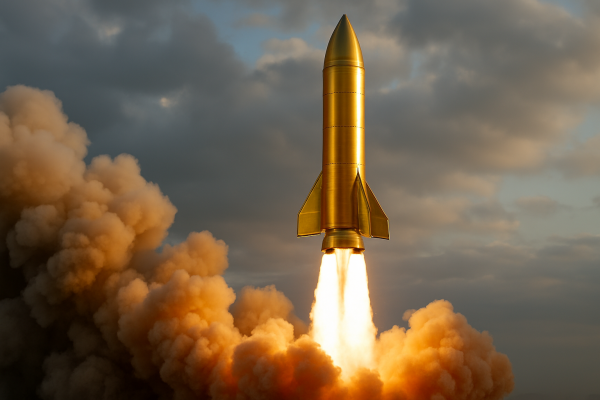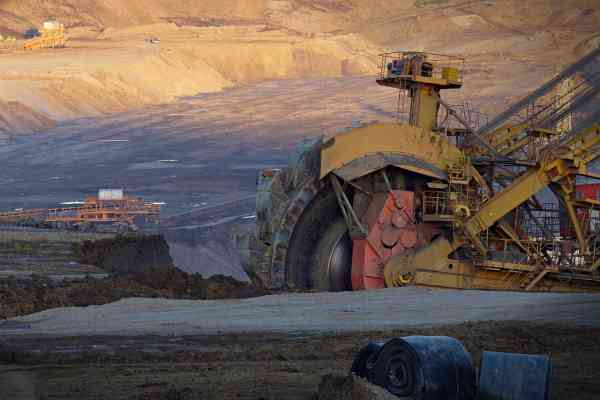September 14th, 2023 | 08:25 CEST
EU investigates BYD! Share staggers. BASF and First Phosphate bet on the battery market
Alarm bells at BYD. The European Commission is investigating the extent to which Chinese e-car manufacturers have received unauthorized subsidies for electric vehicles and can now flood the world market with cheap vehicles. This is weighing on BYD shares, which should actually benefit from the ongoing IAA. In contrast, First Phosphate reports another success. Following the preliminary economic evaluation, tests have now shown that phosphate rock from the Canadians is of high quality and suitable for producing lithium iron phosphate batteries. German chemical giant BASF is also expanding its activities in the battery sector. After setting up a plant in Germany, it is now moving to the United States. But analysts are currently skeptical about the stock.
time to read: 4 minutes
|
Author:
Fabian Lorenz
ISIN:
BASF SE NA O.N. | DE000BASF111 , FIRST PHOSPHATE CORP | CA33611D1033 , BYD CO. LTD H YC 1 | CNE100000296
Table of contents:

"[...] Nickel, therefore, benefits twice: firstly from its growing importance within batteries and secondly from the generally growing demand for such storage. [...]" Terry Lynch, CEO, Power Nickel
Author
Fabian Lorenz
For more than twenty years, the Cologne native has been intensively involved with the stock market, both professionally and privately. He is particularly passionate about national and international small and micro caps.
Tag cloud
Shares cloud
First Phosphate: Economic valuation convincing
Why does e-car giant BYD, among others, rely on batteries made of lithium iron phosphate? Quite simply, they are non-explosive, temperature resistant and enable fast and frequent charging. That is why the future belongs to the lithium iron phosphate battery. The demand for phosphate is correspondingly high. First Phosphate wants to profit from this huge market in the future. To this end, the Canadians are currently developing areas in Quebec with a total size of 1,500 sq km and the purest magmatic anorthosite phosphate rock. The preliminary economic assessment ("PEA") for the Lac à l'Orignal concession area is already available and includes impressive figures. The battery quality test by a partner in Belgium was also positive.
But first, to the PEA: The mine's resources are sufficient to mine an average of 425,000 t of processed phosphate concentrate (P2O5 content over 40%), 280,000 t of magnetite and 97,000 t of ilmenite per year. And this over a period of 14.2 years. Quantity and period result in a net present value (NPV) of CAD 795 million before tax and CAD 511 million after tax. The project would already pay for itself after 5 years, as a cash flow of CAD 567 million after taxes could be generated in this period alone.
Together with partners - which include a subsidiary of commodities giant Glencore - First Phosphate aims to build vertical integration from mine to value-added production of purified phosphoric acid and active LFP cathode material for the North American LFP battery industry. The raw material quality required for this appears to be right. A 900-kilogram apatite concentrate sample was produced for quality control at First Phosphate's pilot plant at SGS Québec. The sample was sent to partner Prayon Technologies SA in Belgium for intensive testing. The initial results are strong. For example, processing the material using the CPP process was straightforward and required no further grinding. The underlying phosphate rock was high grade, with a P2O5 content of about 40.6%, and the impurity content was low. The pilot plant could be operated with an efficiency of more than 99%. The final test report is expected to be available in Q4 2023.
First Phosphate's stock has been unimpressed by this progress in recent months and is currently trading at EUR 0.20. The market capitalization is a very manageable CAD 16.4 million. This appears to be anything but high and opens up an attractive entry opportunity.
BASF: Driving battery activities forward
BASF also wants to help reduce its dependence on China and Russia for raw materials for battery production. This summer saw the opening of the first factory for cathode material, the primary material for batteries, in Germany. The opening of the state-of-the-art production plant for cathode materials was also attended by many politicians in Schwarzheide, Brandenburg. In order to create a cycle in the battery value chain, a battery recycling plant for the production of black mass is also currently being built on-site.
BASF has similar plans in North America. There, starting in 2024, the cathode material will be produced from recycled metals and supplied to Nanotech Energy to produce lithium-ion battery cells. In this way, Nanotech aims to reduce the carbon footprint of its lithium-ion batteries for the North American market by around 25%.
Battery supply, of course, is only a small part of the chemical giant's business. And for the rest, things do not look good, at least according to UBS. Their analysts expect demand to remain low throughout the rest of the year. Therefore, they recommend the share with a "Sell" rating and a price target of EUR 40. BASF shares are currently trading at EUR 44.55.
BYD: Is the EU hammer coming?
The news came as a surprise yesterday: the European Commission will launch an investigation against Chinese electric vehicle manufacturers. According to the report, BYD, XPeng and Co. are suspected of receiving unauthorized state subsidies. As a result, they are said to be in a position to produce electric vehicles significantly cheaper and thus distort global competition. This was announced yesterday by Ursula von der Leyen, President of the European Commission. World markets are currently being flooded by "cheaper Chinese electric vehicles," von der Leyen said in her State of the Union address to the EU Parliament in Strasbourg. "This is distorting our market." She said she would, therefore, launch an "anti-subsidy investigation." Shortly after the announcement, BYD's stock was down more than 3%. The potential impact of the investigation is still unclear, but there was a reference to the solar industry. If the EU wants to prevent a similar fate this time, it must take strong action.
The EU's announcement is a real bombshell. The investigation is sure to drag on longer and, at the very least, cause uncertainty among shareholders of Chinese e-car manufacturers. In contrast, investors in First Phosphate are not benefiting from the fate of a single manufacturer but rather the overall market. BASF is making progress in expanding its battery activities but has numerous other issues to address.
Conflict of interest
Pursuant to §85 of the German Securities Trading Act (WpHG), we point out that Apaton Finance GmbH as well as partners, authors or employees of Apaton Finance GmbH (hereinafter referred to as "Relevant Persons") may hold shares or other financial instruments of the aforementioned companies in the future or may bet on rising or falling prices and thus a conflict of interest may arise in the future. The Relevant Persons reserve the right to buy or sell shares or other financial instruments of the Company at any time (hereinafter each a "Transaction"). Transactions may, under certain circumstances, influence the respective price of the shares or other financial instruments of the Company.
In addition, Apaton Finance GmbH is active in the context of the preparation and publication of the reporting in paid contractual relationships.
For this reason, there is a concrete conflict of interest.
The above information on existing conflicts of interest applies to all types and forms of publication used by Apaton Finance GmbH for publications on companies.
Risk notice
Apaton Finance GmbH offers editors, agencies and companies the opportunity to publish commentaries, interviews, summaries, news and the like on news.financial. These contents are exclusively for the information of the readers and do not represent any call to action or recommendations, neither explicitly nor implicitly they are to be understood as an assurance of possible price developments. The contents do not replace individual expert investment advice and do not constitute an offer to sell the discussed share(s) or other financial instruments, nor an invitation to buy or sell such.
The content is expressly not a financial analysis, but a journalistic or advertising text. Readers or users who make investment decisions or carry out transactions on the basis of the information provided here do so entirely at their own risk. No contractual relationship is established between Apaton Finance GmbH and its readers or the users of its offers, as our information only refers to the company and not to the investment decision of the reader or user.
The acquisition of financial instruments involves high risks, which can lead to the total loss of the invested capital. The information published by Apaton Finance GmbH and its authors is based on careful research. Nevertheless, no liability is assumed for financial losses or a content-related guarantee for the topicality, correctness, appropriateness and completeness of the content provided here. Please also note our Terms of use.




